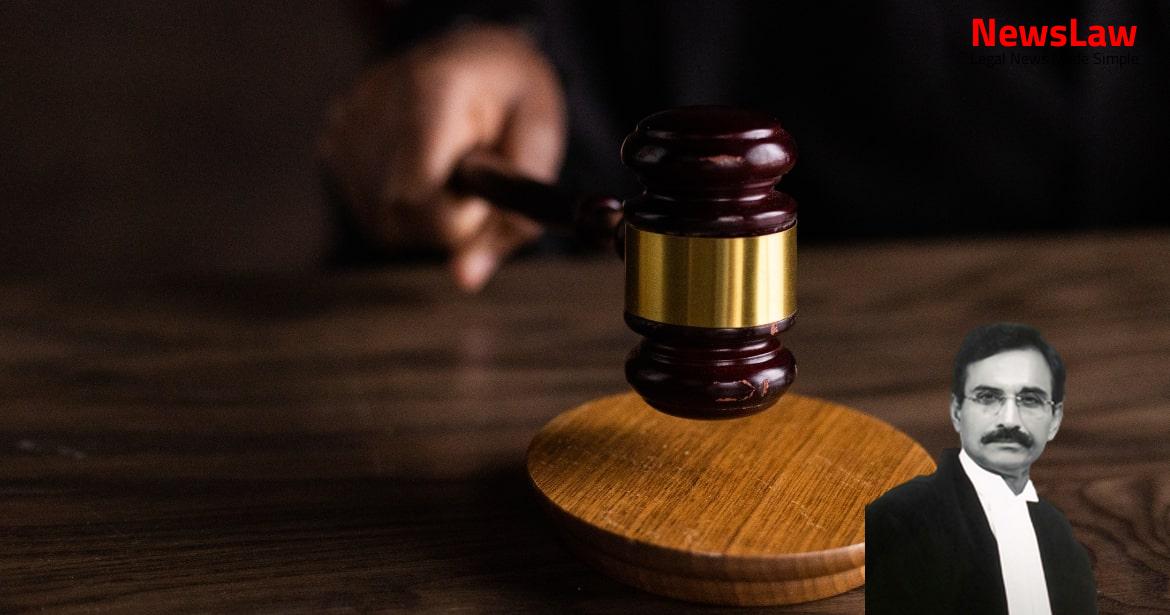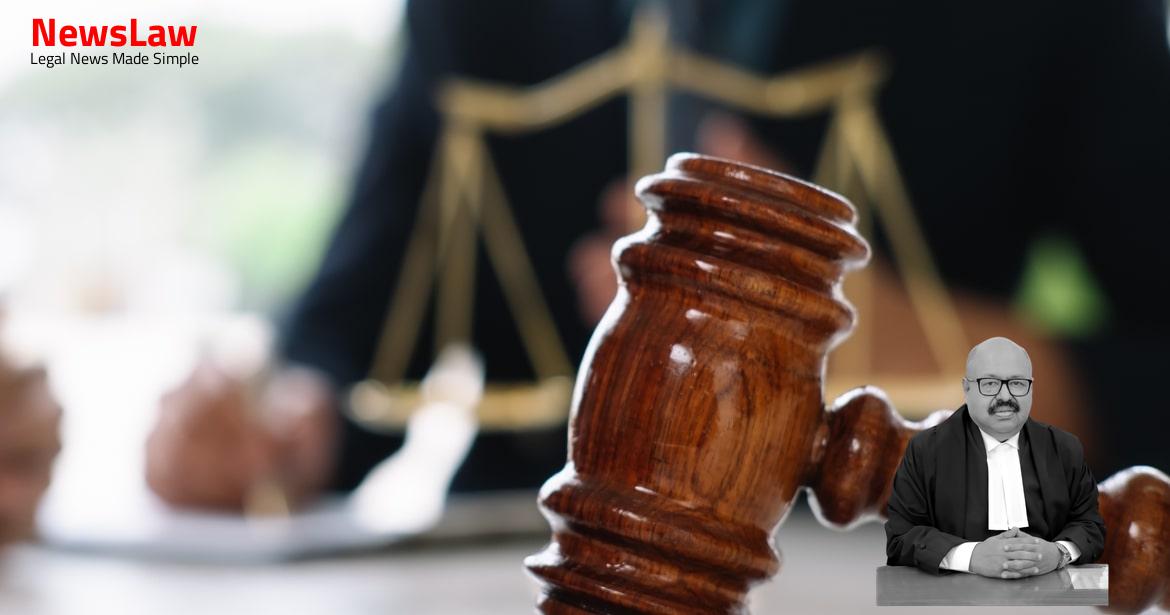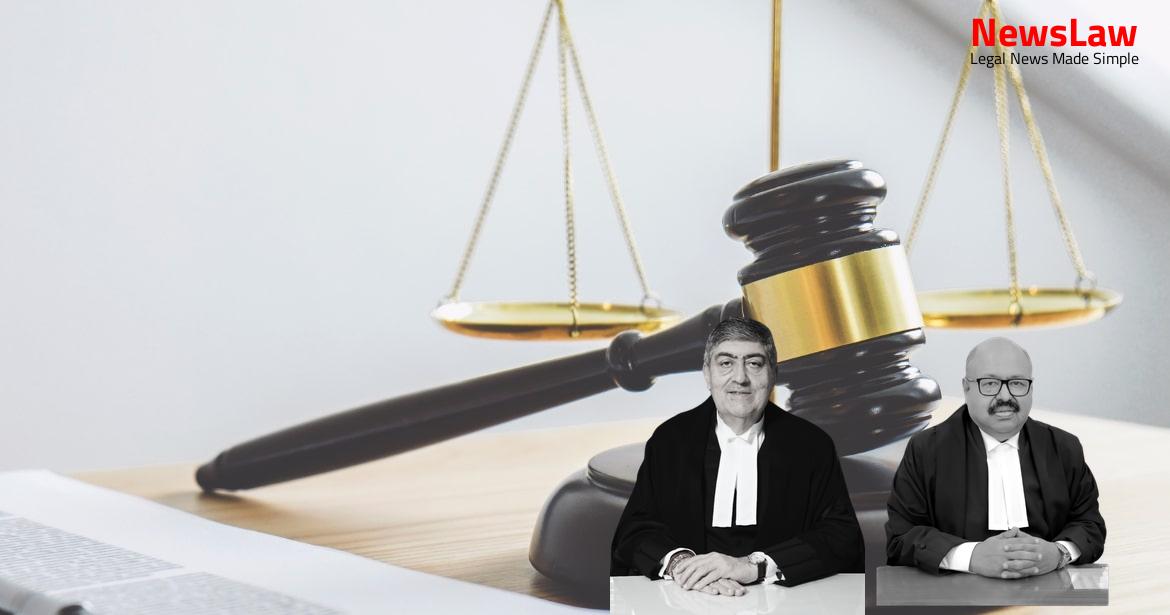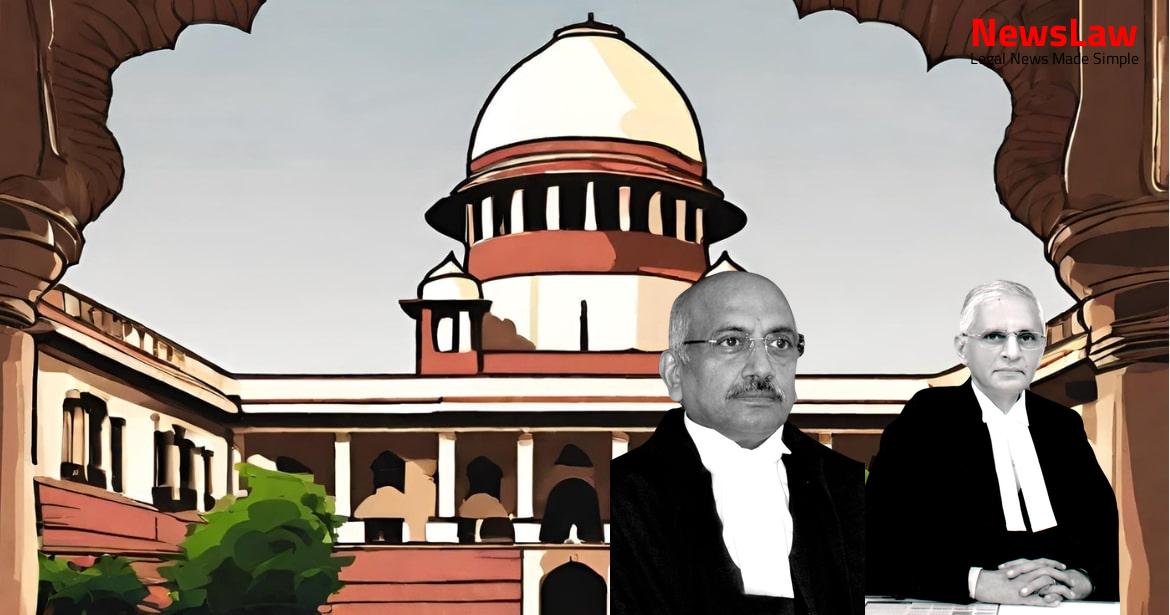In a recent legal case, the court delved into the complexities of deciding title disputes in injunction suits. Analyzing the nuances of when to investigate title issues, the court highlighted the importance of specific pleadings and issues on title for a conclusive finding. Discover the legal intricacies of addressing title disputes in cases involving possession rights and the necessity of a full-fledged trial to resolve such matters.
Facts
- Plaintiff filed a suit for perpetual injunction against defendants to prevent interference with possession of the suit property.
- Plaintiff claims to be the absolute owner of the property in possession.
- Defendant No.2 claims ownership through a registered sale deed dated 13.4.1992.
- Defendant has constructed an 8 ft. high compound wall with hallow bricks on the property.
- Single judge of Karnataka High Court found that a suit for permanent injunction without seeking a declaration of title was not tenable.
- Single judge allowed the appeal and set aside the decree in the case.
- Appellant-plaintiff has challenged the judgment and order of the single judge in the High Court of Karnataka.
Also Read: Presumption of Genuine Endorsements in Cheque Case
Issue
- The trial judge framed the issue of whether the plaintiff demonstrated lawful possession of the suit property at the time of filing the suit.
- This issue is crucial for determining the plaintiff’s claim to the property.
- The possession of the property at the relevant date is central to the plaintiff’s case.
Also Read: Medical Negligence and Compensation: A Landmark Decision
Arguments
- Shri Ajit Bhasme, learned Senior Counsel representing the plaintiff-appellant, argued that the single judge of Karnataka High Court erred in interfering with the trial court’s well-reasoned judgment.
- The learned Senior Counsel emphasized that the trial court, based on extensive documentary evidence, rightfully found the plaintiff in peaceful possession and decreed the suit accordingly.
- He referred to a prior High Court judgment (Writ Petition No.38853 of 1999) where the possession of the plaintiff was deemed lawful, further supporting the trial court’s decision.
- The learned Senior Counsel criticized another single judge of Karnataka High Court for overturning the trial court’s decree based on the established possession rights of the plaintiff.
- Sale-deed of defendant No.2 was dated 5.4.1984
- Sale-deed on which plaintiff-appellant claimed was dated 13.4.1992
- No interference warranted in the present appeal
Also Read: Remand of Writ Petition for Restoration and Decision on Merits
Analysis
- The court will not investigate or render a finding on a question of title if the averments regarding title are absent in a plaint and there is no issue relating to title.
- In cases involving complicated questions of fact and law relating to title, the court will generally refer the parties to a comprehensive suit for declaration of title instead of deciding the issue in a suit for mere injunction.
- Exceptions to the rule of not deciding title in suits for injunction include cases where the matter is simple and straightforward.
- Persons with clear title and possession suing for injunction should not be forced into a more expensive and cumbersome suit for declaration unless necessary.
- The court must use discretion to determine when to inquire into title and when to refer the plaintiff to a declaratory suit, based on the facts of the case.
- If a cloud is raised over the plaintiff’s title and he is out of possession, a suit for declaration and possession, with or without a consequential injunction, is the remedy.
- Failure to claim declaration of title in a suit for permanent injunction can render the suit not maintainable if the title of the property is in dispute or under a cloud.
- In cases where possession needs to be established based on title, the issue of title directly arises for consideration.
- Entries made by a Corporation can be corrected within a certain time frame if fraud, misrepresentation, or suppression of facts is involved.
- The correction of entries by the Corporation is only relevant for tax purposes and does not create or extinguish title to the property.
- Adjudication of title disputes should be left to the civil court, and entries by external bodies like the Corporation should align with court determinations.
- The court will generally not decide title issues in injunction suits unless necessary based on the nature of the case.
- In cases where the defendant disputes the title of the plaintiff, the plaintiff is not always required to seek the relief of declaration.
- In suits for prohibitory injunctions concerning immovable property, a finding on title cannot be made without necessary pleadings and appropriate issues regarding title.
- The presence of specific or implied pleadings and issues on title is crucial for a title finding in a suit for injunction.
- A suit for mere injunction does not lie if the defendant raises a genuine dispute regarding title.
- If the defendant raises a cloud over the title of the plaintiff, a suit for bare injunction cannot be maintained.
- In the present case, the defendant No.2 has raised a genuine dispute with regard to title, and the title of the plaintiff over the suit property is not free from cloud.
Decision
- The appeal was found to be without merit and was dismissed.
- The issue regarding title can only be decided after a full-fledged trial based on the evidence presented by both parties.
- All issues were answered in favor of the plaintiff-appellant, and the suit was decreed as prayed for.
- No costs were ordered to be paid by any party.
Case Title: T.V. RAMAKRISHNA REDDY Vs. M. MALLAPPA (2021 INSC 454)
Case Number: C.A. No.-005577-005577 / 2021



